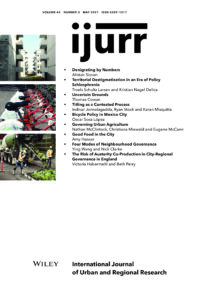Why, after years of restrictive regulation of street vending, and food vending in particular, have cities across North America welcomed new food carts and trucks? In this article I draw on a case study of Vancouver, Canada, to demonstrate the important effect of ideas about food on the regulatory and policy changes that have allowed food carts and trucks to proliferate. In particular, new cultural discourses have imbued food with a multivalent goodness. This goodness is understood to have the capacity to do good in the city by bringing good urban places into being. While these discourses favour the tastes of the privileged, ideas about ‘good’ food expand beyond the ‘gourmet’ to embrace health, environment, economy, cultural diversity and creativity, as well as community building, local identity and visions of vibrant, shared public spaces. The proliferation of discourses about ‘good food’ has produced a potent set of cultural ideas that animates popular and policy discussions about street food in the city; in Vancouver, these ideas provided the impetus to push for regulatory change and generated consensus around new, less restrictive regulation of food vending on streets and sidewalks.

